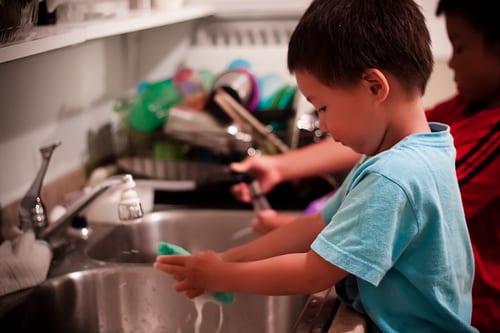
Written by Pasha Lubeck
It’s that time of the year again. Summer is over and the kids are back in school. With classes in full swing, this means tons of homework, projects, exams and various activities. Like adults, children also need to take a break from their daily routine to prevent boredom and feeling lethargic.
Here are a few ideas on how to keep your child physically and mentally active, even when not in school.
After-school programs
Nurture your child’s interests and hobbies by enrolling them in after-school programs, whether it’s soccer, chess or ballet. Not only does this enhance their skills and improve academic performance, it also helps them to be more confident, discover new interests and gain more friends. These programs provide the time children need for physical, social and emotional skill building – outside the regular structure within a school, all of which are instrumental to achieving success later on in life.
After School Alliance, an organization dedicated to raising awareness of the importance of after school activities, states that juvenile crime is at its peak during after-school hours. Having kids participate in programs keeps them safe and out of trouble, which is especially advantageous and beneficial for families whose parents are still both away at work by the time the children come home from school.
Assign chores
Asking children to do chores around the house is a great way to build their sense of competence. It makes them understand what it’s like to run a household, which in turn teaches them to be responsible. Like cogs in a wheel, chores make children feel they are an important part of the family because they actually contribute. Additionally, studies have shown that helping others not only promotes higher self-esteem, it increases social and academic skills as well, while lowering the risk of depression and anxiety disorders.
As early as two years, kids can be taught to put their toys away after playtime or put clothes in the hamper on laundry day. Children ages 4 to 7 can water plants and pull out weeds when gardening while those aged 8 to 9 can be tasked to bring in the mail or newspaper. Older kids are capable of putting away groceries, make their own bed, unload the dishwasher and take the dogs out for a walk.
Alternatively, you can make a list of all the household chores that need to be done and have them pick out the ones they like or in most cases, the least they hate. Instead of just telling them how to do a specific task, ease them into it. Demonstrate it step by step at first and then let them help out next time. After this, you can supervise as they do it on their own. To avoid heat butting and frustration, give them a wider berth for time. Eventually, they would get the hang of it and be able to do it without supervision.
Promote exercise
Children are energetic by nature and exercise is an excellent way to put all that energy to use. Aside from sports, regular exercise when coupled with a healthy diet prevents obesity by keeping them fit and in shape. This is easier said than done, though. These days, it’s getting increasingly difficult and challenging for parents to get their kids to be physically active, especially when they’re slumped on the couch, watching TV or playing video games.
This kind of inactivity is one of the major factors that contribute to childhood obesity as the body does not burn enough calories versus the amount it consumes. According to a 2010 survey by the World Health Organization[1], the number of overweight children under the age of five is estimated to be over 42 million globally and approximately 35 million of them live in developing countries. In the United Kingdom, around 27% of children are overweight and research suggests that this is due to continual reduction of exercise.
Cut back on sedentary activities by limiting the time they spend in front of the TV and playing video games. While these things can be educational, they aren’t exactly doing anything for the physical well-being of your child. Encourage active play such as dancing, skipping ropes and playing catch in the park or even in the backyard. Instead of driving to the supermarket, try walking or cycling.
In addition to the suggestions above, you can also bring them to museums and the local library. As with being energetic, kids are also naturally inquisitive. Foster this by exposing them to educational activities, like a trip to the zoo or the Museum of Natural History. Hopefully with these tips in mind, you will be able to raise healthy, happy and intelligent kids.
About the Author:
Pasha Lubeck is a passionate freelance interior designer. She is based in California and works part-time for Kichler Superstore. A hands-on mom, Pasha spends most of her free time outdoors with her two beautiful boys.



